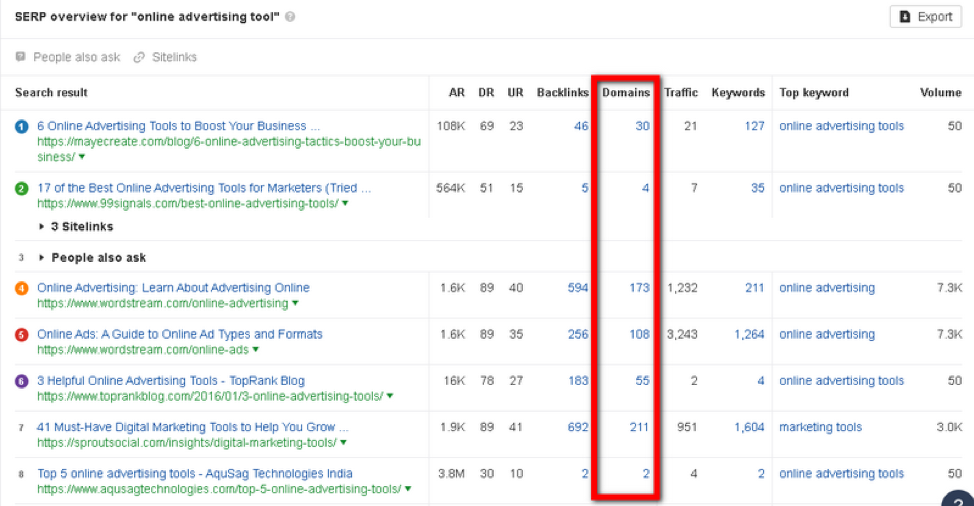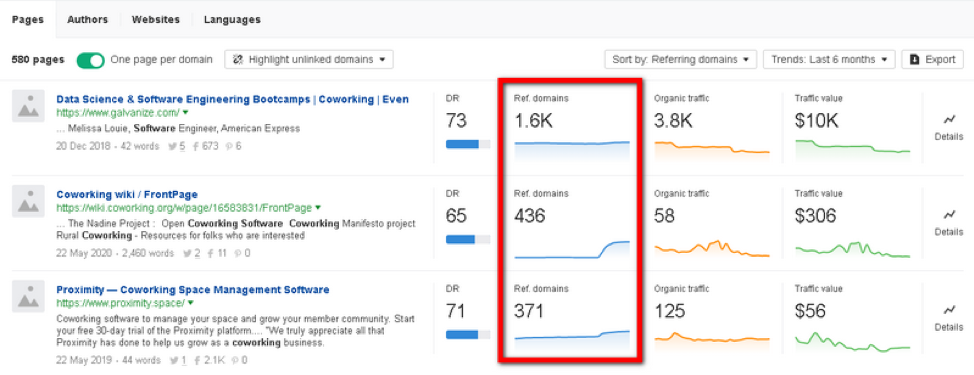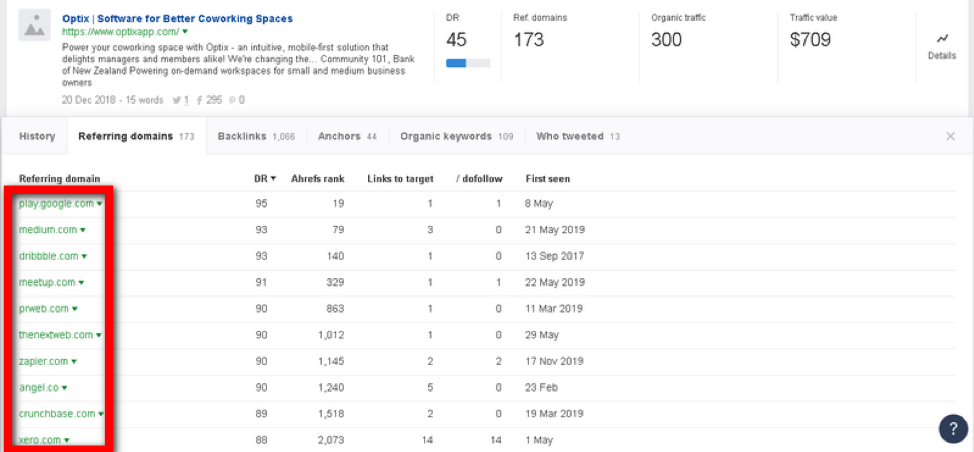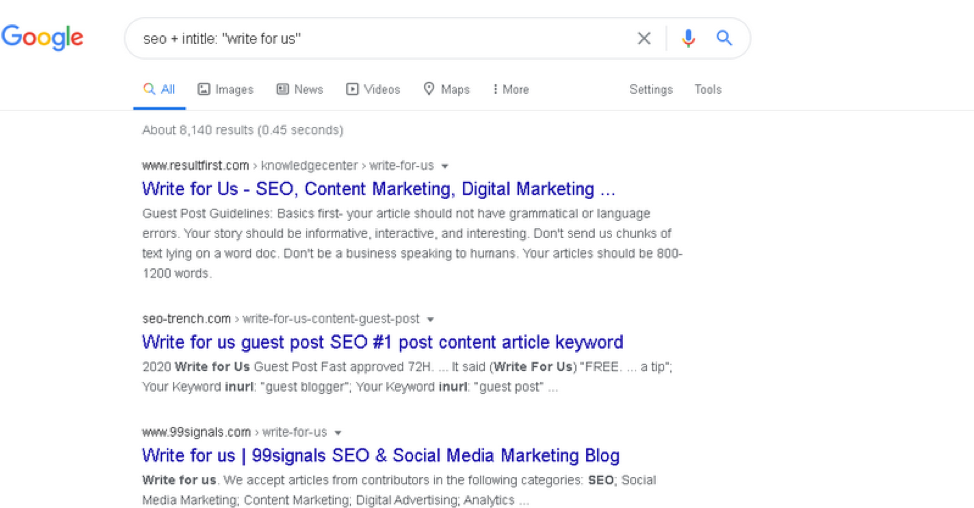Google's first page is the most desirable place for every website owner. If your website can be found in Google's top 10 results, you will have more chances to push your business forward.
However, the question is how to get to the first page of Google?
In this tutorial, you will find out 7 actionable ways that will help you rank well and maintain the positions in SERP.
Let's move on!
A Couple of Requirements You Must Take Into Account
If you want to see your website on the first page of Google, you must work on some technical aspects of it beforehand. Let's review them:
- Your website must load fast
- It should be mobile-friendly
- All possible SEO issues must be fixed
- It must have a good navigation system
- It must be secured (HTTPS)
Once all these conditions are met, you can focus on the following seven tips on how to get to Google's top 10 results page.
1. Start With Keyword Research
When we talk about increasing rankings in SERP, we must realize that the very first thing that you should conduct is keyword research.
Be aware of the fact that there is no one golden rule on how to do keyword research properly. It is based on different aspects, like:
- Website that includes quality of content, number of pages, authority
- Goals (traffic, leads, sales, brand exposure)
- Budget and deadlines
- Competition
Therefore, it is pretty hard to find the right step-by-step tutorial on keyword research that would align with your objectives. Nevertheless, any keyword research has a standard framework that you can stick to.
This scheme suggests a few directions to move on:
- Analyze your seed keywords
- Work on keyword ideas
- Group your list of keywords
- Prioritize your keywords
By following this simple but effective scheme your keyword research will find the right direction.
2. Competitor Research
It is merely possible to be successful in your business if you don't care about your competitors. And if you don't know what your competitors do to maintain their positions in the SERP, you will have fewer chances to rank well.
In order to find your niche-related competitors, you will have to use a few target keywords and see what Google reveals. For example, let's review what competitors you would have if you were a representative of a tool for content editing. The keyword we are going to use is "content editing tools":

If you review any of these lists, you will see that there are services that belong to well-known brand names. Therefore, people will trust them more and will use their services.
What's more important, if you pay attention to technical SEO elements of these websites, you will see that the majority of them have quite a strong Domain Rating:

Does it mean that you are doomed to failure?
No. You can outrank your competitors by working on your SEO. It is possible with the help of increasing the number of backlinks your website has.
3. Research How Many Backlinks You Must Acquire
One of the ranking factors that Google draws attention to is how many backlinks the web-pages have. If your pages acquired the number of high-quality backlinks, the better they will rank in search.
To find out and calculate how many backlinks from the unique referring domains you should gain, you will need to work with the "SERP overview" report suggested by Keywords Explorer tool:

Check out how many referring domains competitors' web-pages have and evaluate a scope of work you will have to do.
4. Build More Backlinks
Once you know how many backlinks you must gain for each page of your website approximately, you should start your link-building campaign.
There are various link-building strategies you can use. Nevertheless, there are a few ones that work like a charm. Let's review them:
- Outreach
Outreach is the process of building business relationships based on a mutual benefit. In this very case, outreach aims to earn the backlinks to your content, service, brand, etc. The main idea here is to get a desirable link by sending emails to your potential targets.
So, how to find your targets for outreach?
Take your niche-related keyword and go to Content Explorer tool to see the backlinks:

Filter the results by applying the "Referring Domains" option. Afterwards, revise all the prospects that might be your promising outreach targets:

The rest you should do is a blogger outreach itself.
5. Write guest posts
Guest blogging is one of the most resultative ways to build links efficiently. You suggest an outstanding piece of content to place it on some blog and get a backlink in return as a reward.
How to find blogs that accept guest posts?
Go to Google and use this search operator topic + intitle: "write for us":

- Create High-Quality Content
Google doesn't suggest poor content in the top 10 results. It prefers to provide users with high-quality content that aligns with search intent.
You might be wondering how to create such content?
Your focus must be on covering everything possible that is related to a particular topic. Let's say, you want to cover the topic that would allow you to rank for a keyword "best coworking management software", you should mention all services that haven't been covered in other posts.
Now, check out with Google what services you can find by exploring different content:
According to the SERP, you can see that each blog post suggests a certain number of services listed. Your purpose is to review all these posts and see what services haven't been mentioned yet. Afterward, write a comprehensive list article, and don't forget to cover the information on each service in detail.
- Optimize Website Pages for Target Keywords
You should know that search engines rank website's pages but not the website particularly. Due to this fact, focus on optimizing pages using your target keywords that would match your audience's search intent.
How to follow search intent properly?
You must take care of the type of content you're creating, format, and its angle. Now, let's specify these aspects in more detail:
- Content type (category pages, blog posts, landing pages, product pages)
- Content format (lists, how-to guides, reviews, tutorials, etc)
- Content angle (it depends on what audience you're trying to reach out with your piece of content - if you would like to rank for "how to play guitar", your content will attract people who are newbies in guitar playing)
- Be Patient!
Nobody can tell you how long you should wait to see your pages rank on Google's top 10 results page. A time frame varies - it depends on the niche you're competing in.
For instance, if you consider a coworking management software niche, you will see that there are roughly 5-7 main players on the market. Their SEO activity is not as good as it is supposed to be. As a result, by doing your SEO diligently, you will see some positive results in 3-5 months.
The main rule in this game is - be patient and you'll go far!
To Sum Up
Unfortunately, you will never find the only one formula that would allow you to get to Google's first page for a hundred percent. It doesn't exist because Google updates its algorithms from time to time.
Fortunately, SEO strategies and tricks will help you find the right way and move your positions in the SERP with time.
These seven simple but actionable tips will reward you with positive results. Follow them and you'll get to Google's first page.
